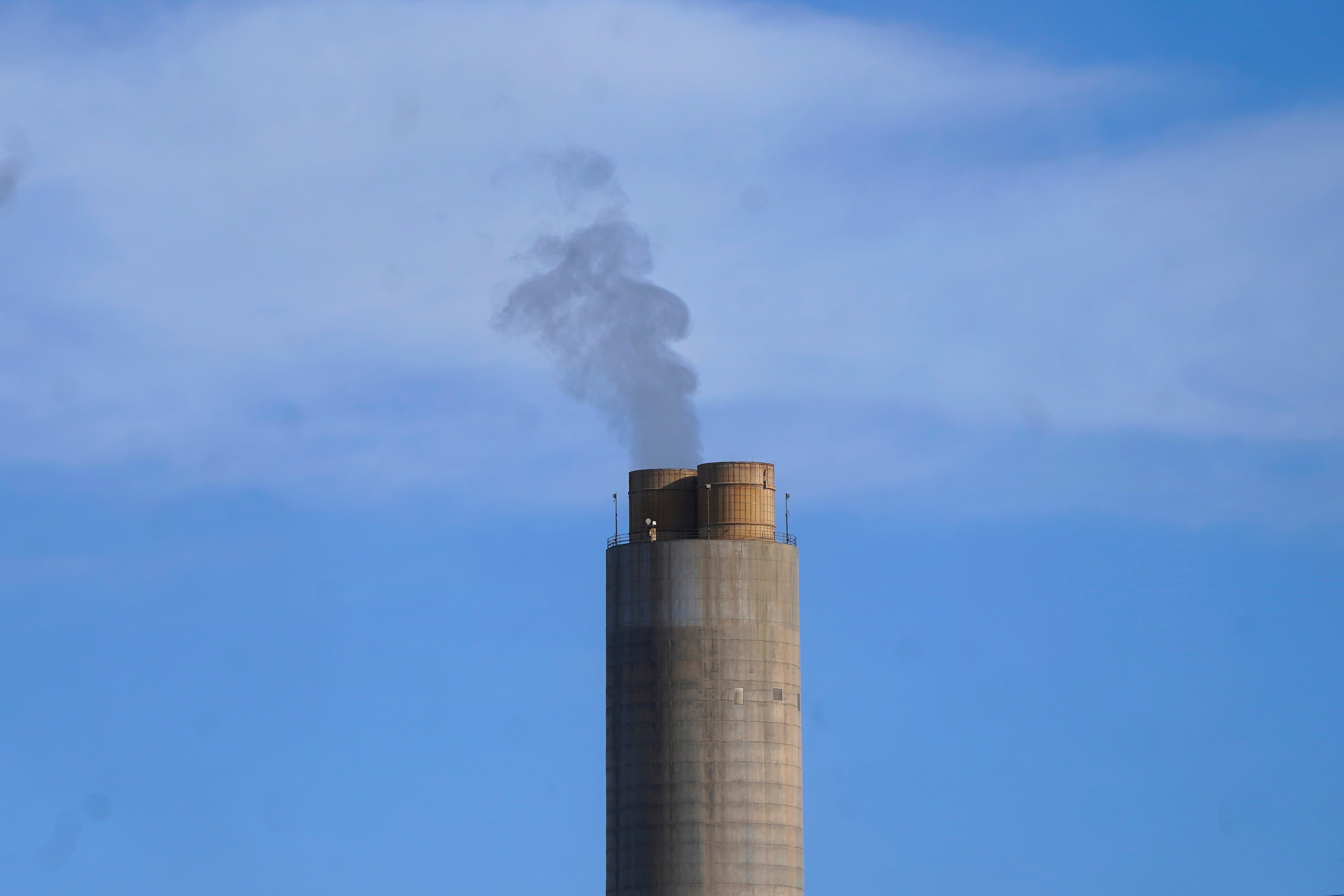EPA moves to restore rule on mercury from power plants
The U.S. Environmental Protection Agency is reaffirming the basis for a rule that requires “significant reductions” in mercury and other harmful pollutants from power plants

The U.S. Environmental Protection Agency on Friday reaffirmed the basis for a rule that requires “significant reductions” in mercury and other harmful pollutants from power plants, reversing a move late in former President Donald Trump's administration to roll back emissions standards.
The EPA said it found it “appropriate and necessary” to regulate emissions of toxic air pollution under the Clean Air Act, setting the stage to restore protections enacted when President Barack Obama's EPA issued the Mercury and Air Toxics Standards.
“For years, Mercury and Air Toxics Standards have protected the health of American communities nationwide, especially children, low-income communities, and communities of color who often and unjustly live near power plants,” EPA Administrator Michael S. Regan said in a statement. “This finding ensures the continuation of these critical, life-saving protections while advancing President Biden’s commitment to making science-based decisions and protecting the health and wellbeing of all people and all communities.”
Coal-fired power plants are the largest single manmade source of mercury pollutants, which enter the food chain through fish and other items that people consume. Mercury can affect the nervous system and kidneys; the World Health Organization says fetuses are especially vulnerable to birth defects via exposure in a mother’s womb.
Public health professionals and environmentalists praised the restoration of the Obama-era rule, saying it protects Americans, especially children, from some of the most dangerous forms of air pollution. But many also said the administration could go further by requiring even greater reductions in toxic air pollution from power plants.
“Retaining these protections is a critical first step; we now urge EPA to strengthen them. We need stronger standards to protect all communities from these pollutants, especially those living near power plants," said Georges C. Benjamin, executive director of the American Public Health Association.
Michael Panfil, an attorney for the Environmental Defense Council, also urged the Biden administration to strengthen the protections, but said the restoration of the rule “should be a relief to all Americans.”
Most coal-fired power plants have already made upgrades to their facilities required when the regulation first went into effect in 2012. The Edison Electric Institute, a lobbying group that represents investor-owned electric companies, thanked the EPA for restoring the rule.
“EEI’s member companies, and the electric power industry collectively, have invested more than $18 billion to install pollution control technologies to meet these standards,” Tom Kuhn, president of the lobbying firm, said in a statement. “Since 2010, our industry has reduced its mercury emissions by more than 91 percent, and we have seen a significant change in our nation’s energy mix, which is getting cleaner and cleaner every day.”
Sen. Tom Carper (D-Del.), the chairman of the Senate Environment and Public Works Committee, said the announcement resolves whether the EPA should regulate mercury and other toxic air pollution.
“When the previous administration chose to remove the legal underpinnings of the MATS rule, they ignored the irrefutable science on the devastating impacts that mercury has on children’s health,” Carper said.
But Sen. Shelley Moore Capito (R-W. Va.), the committee's ranking Republican, warned the rule is part of Biden's goal “to shut down American coal plants.”
“We’ve experienced the damage these regulations have done across our country, including in West Virginia. It’s not surprising this administration is returning to these Obama-era rules, which resulted in coal facilities closed and the livelihoods of entire towns decimated," Capito said. “Worse, using the same flawed math behind the original MATS rule now indicates where this administration plans to go from here.”
___
Follow Drew Costley on Twitter: @drewcostley.
___
The Associated Press Health and Science Department receives support from the Howard Hughes Medical Institute’s Science and Educational Media Group. The AP is solely responsible for all content.
Bookmark popover
Removed from bookmarks